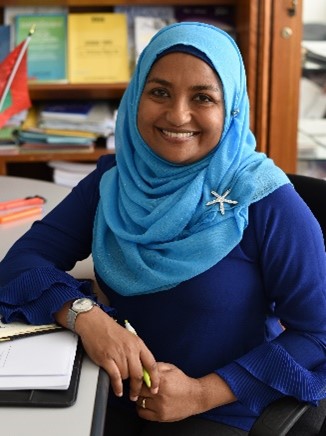You are here
Home › TLRI research › Research in progress › ECE sector › Supporting children’s literacy skills and sense of belonging through co-created multilingual multimodal storiesSupporting children’s literacy skills and sense of belonging through co-created multilingual multimodal stories
Intro / Project description
As families from refugee/immigrant backgrounds resettle in New Zealand to bring up children in a society that privileges English, effort is required to pass on their linguistic and cultural heritage to the next generation. This two-year project is a research-practice partnership which utilises culturally sustaining storytelling strategies to explore how family engagement in early childhood settings can enhance children’s learning outcomes and affirm their multiliterate identities. Using a narrative approach to qualitative inquiry, the research team will work with families from refugee/immigrant backgrounds to co-create multilingual multimodal stories situated in the participants' lives and investigate the impact on home-school connections, children’s literacy outcomes, and their multiliterate identities.
Aims
The study's central research question is: How can identity stories that centre around family life experiences develop multilingual literacy and support belonging for children from refugee/immigrant backgrounds? Sub-questions include:
- How do children, families, and teachers use stories and storytelling in ways that support children's developing language and literacy?
- What do teachers’ narratives reveal about the pedagogical value of identity stories?
- How does the process of co-creating stories strengthen reciprocal relationships between children, teachers, and families?
- What do children’s stories convey about their identities and belonging?
Why is this research important?
The research will contribute towards strengthening intercultural competence and fostering additive language development through the practice of storytelling. Through their role as research partners, teachers will be able to support children’s multiliterate identity development through the process of story gathering and exploring its impact on their practice. By incorporating multilingual stories, featuring languages, cultures, and experiences that relate directly with learners will provide validation of their identities, celebrate their individuality, and is likely to increase their engagement with reading and listening, thereby helping them to develop key comprehension skills.
What we plan to do
The study will adopt a narrative approach to qualitative inquiry where the goal of data collection focuses primarily on eliciting stories from participants to explore how they make sense of personal and cultural experiences. We will explore five different layers of storying:
- stories based on life experiences of participant families,
- stories narrated by children that situate themselves within their lifeworlds,
- stories narrated by families that reflect on the process of story development,
- teachers’ reflections on the impact of storytelling and story development on their professional lives, and
- researchers’ stories that bring together the previous four levels of stories and consider ways of feeding into children’s future identity stories.
The data will be gathered through research conversations with families, children, and teachers, as well as observations of sessions where a teacher or a family member shares stories with children.
The data generated through the project will be analysed co-constructively by the research team, following the procedures of narrative analysis. This would involve transcribing the storied data, familiarising with the transcripts, identifying the structure of each story, and identifying thematic relationships in the storied data.
Contact details

Name: Naashia Mohamed
Address, n.mohamed@auckland.ac.nz

